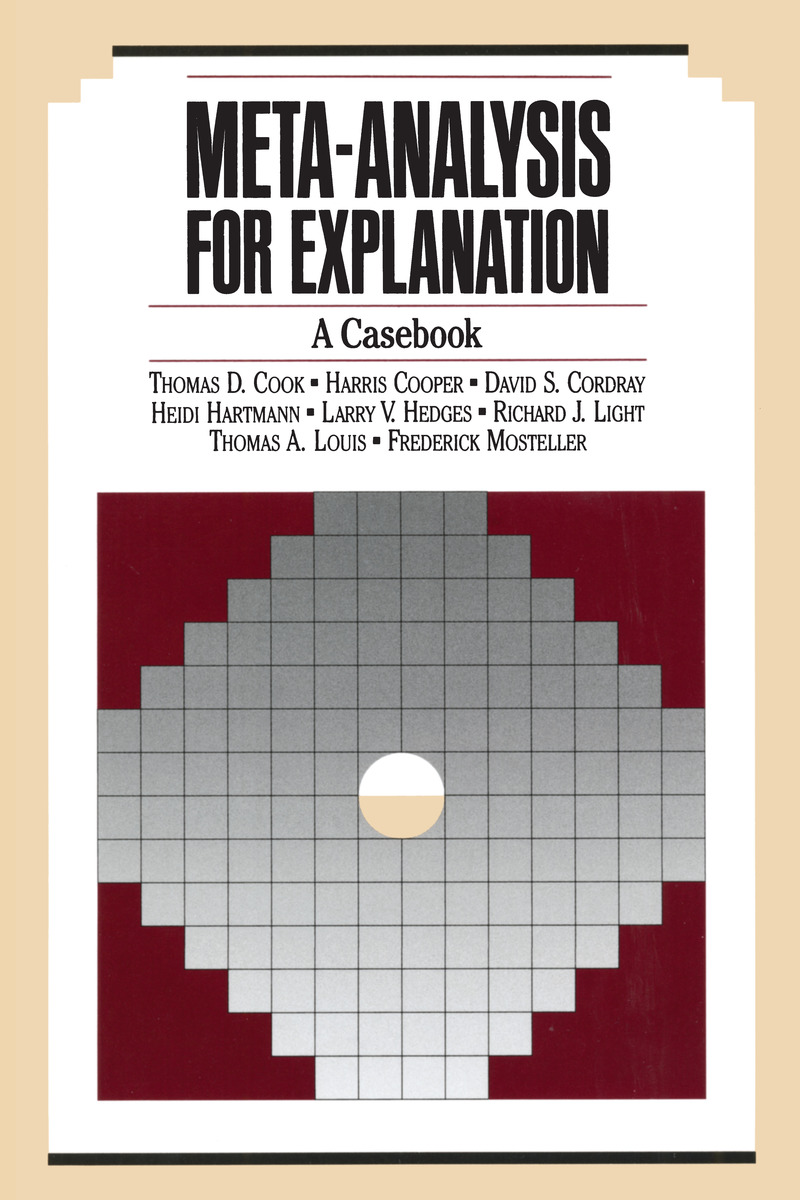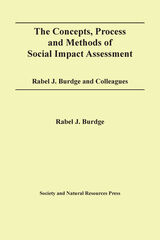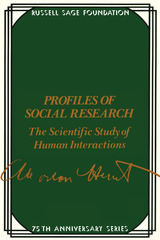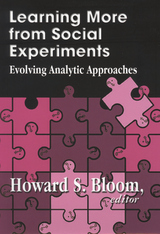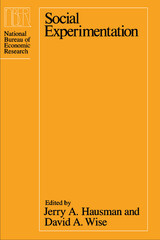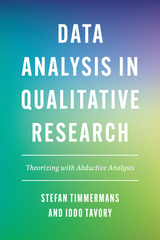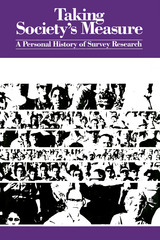Meta-Analysis for Explanation: A Casebook
Russell Sage Foundation, 1992
Cloth: 978-0-87154-220-5 | Paper: 978-0-87154-228-1 | eISBN: 978-1-61044-133-9
Library of Congress Classification H62.M4246 1992
Dewey Decimal Classification 300.72
Cloth: 978-0-87154-220-5 | Paper: 978-0-87154-228-1 | eISBN: 978-1-61044-133-9
Library of Congress Classification H62.M4246 1992
Dewey Decimal Classification 300.72
ABOUT THIS BOOK | AUTHOR BIOGRAPHY | TOC
ABOUT THIS BOOK
Social science research often yields conflicting results: Does juvenile delinquent rehabilitation work? Is teenage pregnancy prevention effective? In an effort to improve the value of research for shaping social policy, social scientists are increasingly employing a powerful technique called meta-analysis. By systematically pulling together findings of a particular research problem, meta-analysis allows researchers to synthesize the results of multiple studies and detect statistically significant patterns among them. Meta-Analysis for Explanation brings exemplary illustrations of research synthesis together with expert discussion of the use of meta-analytic techniques. The emphasis throughout is on the explanatory applications of meta-analysis, a quality that makes this casebook distinct from other treatments of this methodology. The book features four detailed case studies by Betsy Jane Becker, Elizabeth C. Devine, Mark W. Lipsey, and William R. Shadish, Jr. These are offered as meta-analyses that seek both to answer the descriptive questions to which research synthesis is traditionally directed in the health and social sciences, and also to explore how a more systematic method of explanation might enhance the policy yield of research reviews. To accompany these cases, a group of the field's leading scholars has written several more general chapters that discuss the history of research synthesis, the use of meta-analysis and its value for scientific explanation, and the practical issues and challenges facing researchers who want to try this new technique. As a practical resource, Meta-Analysis for Explanation guides social scientists to greater levels of sophistication in their efforts to synthesize the results of social research. "This is an important book...[it is] another step in the continuing exploration of the wider implications and powers of meta-analytic methods." —Contemporary Psychology
See other books on: Casebook | Evaluation | Hedges, Larry V. | Social sciences | Statistics
See other titles from Russell Sage Foundation
